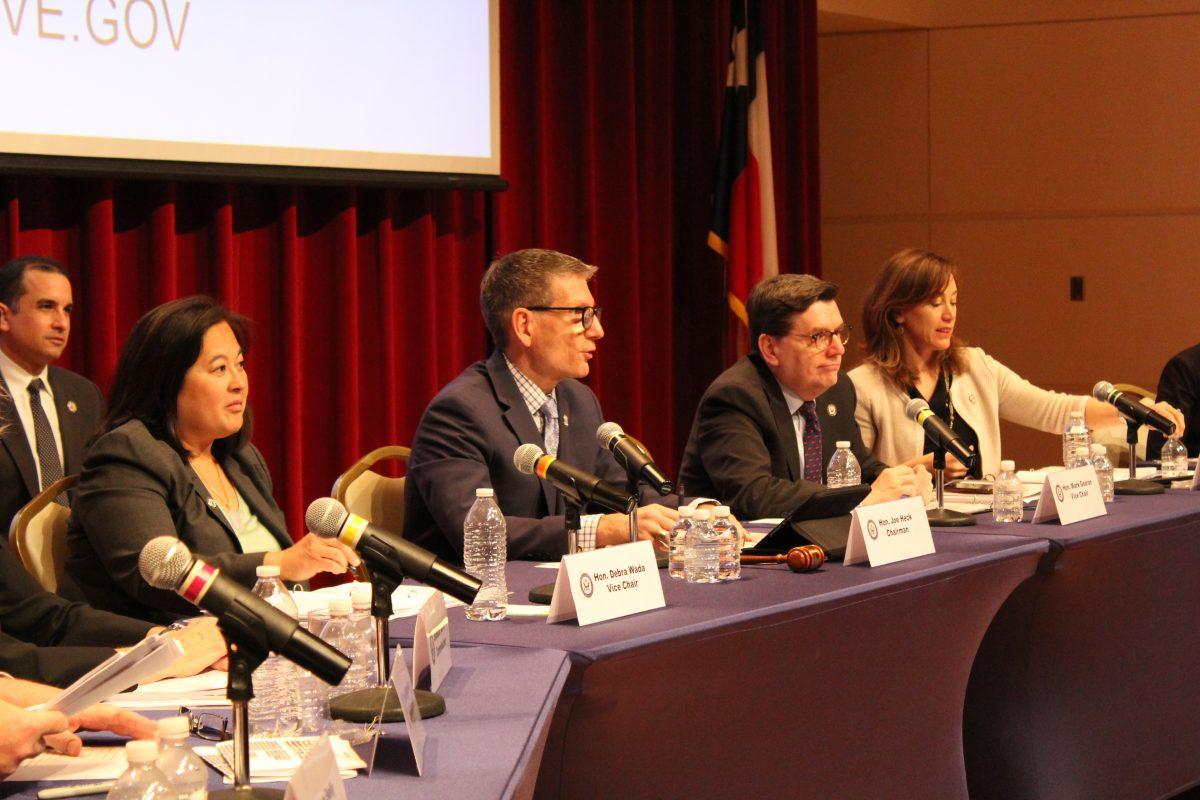The National Commission to Explore National Service Policy Options hearing brought together leaders from The National Commission on Military, National, and Public Service to discuss the future of programs dedicated to public service.
On March 28, “The National Service Hearing: Improving Current National Service Policies and Processes” was held at The Bush School of Government and Public Service Annenberg Conference Center as part of a charter commission which aims to improve national service programs. Peace Corps, OneStar Foundation, City Year, Inc., Texas Conservation Corps of American YouthWorks and the Corporation for National and Community Service were all represented by a group of five panelists at the hearing.
Vice Chair for National and Public Service Mark Gearan began the hearing by using The Big Event as an example of public service in the community.
“What’s coming up this weekend is a very significant statement about Texas A&M, The Big Event, that’s gone on for many years where students together give back to the community that has been the very warm and hospitable host to the university for many years,” Gearan said. “So we admire that kind of engagement and service and commitment.”
Public service can be different for each individual interested in giving back to their country, Gearan said. This could be seen through service in the Peace Corps, military service, AmeriCorps, or small rural and faith based volunteer organizations. Gearan said the commission gives everyone the chance to reflect on what the country could be if everyone had the opportunity to serve.
“My own view is that every American should have an expectation to give back in some meaningful way to their country,” Gearan said. “That is part of what it means to be a citizen.”
The AmeriCorps and Senior Corps are national service programs that provide a platform for Americans to serve their community and country according to Samantha Warfield, spokesperson for National and Community Service. A common theme during the hearing was the need to modernize the system to appeal to younger audiences.
“There is so much happening in the world that there’s not always space to focus on these issues, so I think by creating an environment in which thought leaders from a variety of different backgrounds can engage and lead discussions on how you can create pathways for more Americans to serve their country, whether that be through the military or whether that be through national service programs, is really vital in order to ensure there are sustainable opportunities for the long-term future,” Warfield said.
Michelle K. Brooks, Chief of Staff of the Peace Corps and panelist at the hearing, also emphasized the need to serve and spoke on the opportunities the Peace Corps provides.
“We have an amazing country and it’s an opportunity to really give back,” Brooks said. “Whether that is serving in the Peace Corps or AmeriCorps or in the U.S. military, I think they’re all ways to give back.”
The hearing discussed how to draw in younger membership to the Corps programs and finding methods to connect them to public service. Brooks said if the spirit of service could be instilled in a younger audience, the programs would provide more opportunities for people to think about serving.
“There is a lot of joy and satisfaction in serving others,” Brooks said. “I think if that culture and that spirit can be incorporated or engaged at a younger level it gives students when their looking at career options that this is a viable option… you can make a career out of it and there’s so many different ways and opportunities to do that, it’s not just limited to one type of service model.”
To submit a public comment about how to improve national service, visit https://inspire2serve.gov/content/share-your-thoughts.










